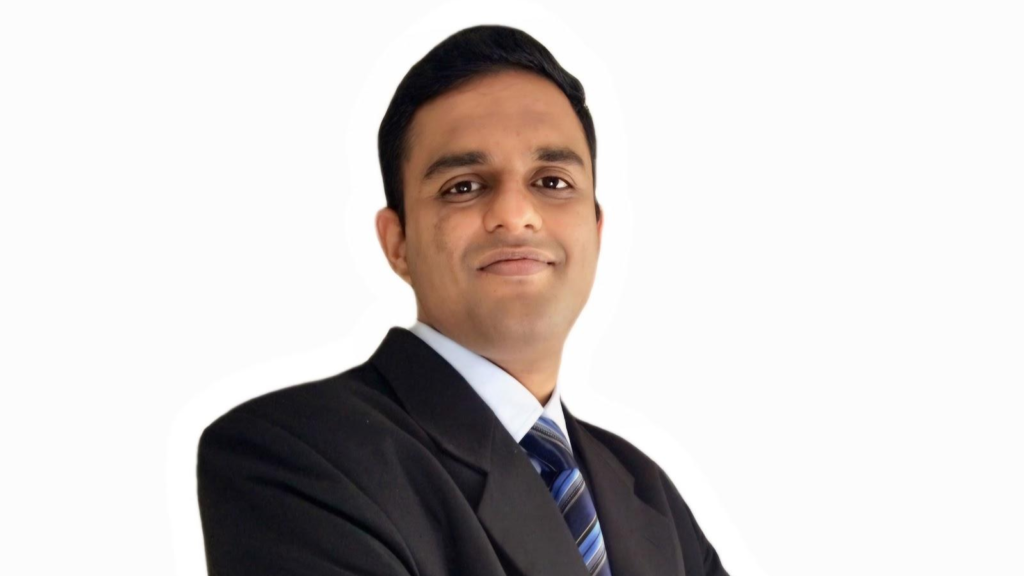Bridging innovation and integrity: The role of quality assurance in AI-based healthcare technologies

Photo courtesy of Ramakrishnan Neelakandan
Opinions expressed by Digital Journal contributors are their own.
“In the critical field of healthcare, where human lives hang in the balance, each technological advance must be underpinned by the highest commitment to quality and safety,” asserts Ramakrishnan Neelakandan, Google’s Health Quality and Safety Engineering lead.
The discourse surrounding artificial intelligence (AI) in healthcare frequently highlights the technology’s potential: its capacity to enhance diagnostics, tailor treatments, and predict health outcomes.
However, Neelakandan’s tenure at Google and previous role as the quality functional lead at Roche illustrate that all software engineering processes, methods, activities, and work items should adhere to stringent standards. They must also uphold the highest safety protocols for universal application.
Neelakandan is a seasoned quality assurance professional with over a decade of experience in healthcare and holds Master of Science degrees in Biomedical Engineering from Wayne State University and Project Management from the University of Wisconsin-Platteville. His insights into addressing safety concerns in AI systems, as detailed in his work “Addressing Safety Concerns in AI Systems: An Analysis and Remediation Strategies,” have proven invaluable in guiding the development of safe and effective AI tools.
These have equipped him to explain the crucial role of quality assurance in deploying healthcare technologies safely to the masses without compromising patient trust or well-being.
Preventing errors and ensuring patient safety
Neelakandan’s work at Google centers on developing rigorous processes and frameworks to ensure AI tools in healthcare are not only accurate and efficient but also safe, reliable, and unbiased. He emphasizes that the foundation of trustworthy AI lies in comprehensive quality assurance frameworks and ethical data management, as outlined in his paper “Ensuring Safety, Quality, And Trust: A Holistic Framework For Responsible AI In Healthcare.”
Neelakandan’s approach focuses on refining the data that fuels AI algorithms. He advocates for diverse and representative datasets that minimize the risk of bias, ensuring that AI tools perform consistently across different populations. This involves meticulous data collection, cleaning, and annotation to eliminate errors and inconsistencies that could skew AI outputs.
His commitment to safety is reflected in the rigorous quality and safety frameworks he develops. These frameworks evaluate AI performance under a wide range of clinical scenarios, ensuring that the technology meets stringent medical standards and functions reliably in real-world situations. This includes testing for potential errors, biases, and unintended consequences, thereby reducing the risk of misdiagnosis and ensuring patient safety.
“Trust is the foundation of any successful healthcare technology,” Neelakandan mentions. “If we want patients to trust our technology, it must be reliable and accurate; quality assurance processes ensure this.”
Leading to accurate and timely treatments
Neelakandan’s commitment to quality and safety extends beyond theoretical frameworks. He emphasizes the practical implications of robust quality processes in developing AI-based healthcare applications. He stresses that the absence of thorough quality checks could compromise the accuracy and reliability of AI analyses, potentially leading to missed diagnoses, delayed interventions, or unnecessary treatments due to false positives.
Neelakandan asserts that early and accurate detection of diseases is paramount for effective treatment and improved patient outcomes. Without stringent quality assurance measures in place, AI-based healthcare tools may fail to consistently identify subtle but critical indicators of disease or generate false alarms, causing unnecessary patient anxiety and potentially harmful interventions.
For Neelakandan, ensuring the reliability of AI tools through rigorous testing and validation is non-negotiable. By upholding the highest standards of quality assurance, he believes that AI can truly fulfill its potential to transform healthcare, empowering clinicians to deliver more accurate, timely, and personalized care and ultimately improving the lives of countless patients.
Leveraging AI’s limitless potential for good
Neelakandan’s work, including publications like ‘The Human-Centered AI Paradigm, Augmenting Clinical Expertise with Accountable Intelligence,’ exemplifies AI’s limitless potential in developing advanced healthcare systems. However, Neelakandan’s health quality and safety framework is pivotal in responsibly harnessing AI’s vast potential for good purposes.
As an ASQ Certified Software Quality Engineer, he underscores that robust guidelines and standards for data privacy, algorithmic transparency, and security, developed collaboratively by health and tech professionals, are essential for ensuring AI technologies advance in a way that prioritizes public health.
This is a crucial boundary-setter, defining the limits within which AI technologies can operate safely and effectively. It delineates what is beneficial and permissible in patient care, preventing the misuse of AI capabilities that could lead to harmful outcomes.
“This structured approach ensures that AI tools enhance healthcare delivery without compromising ethical standards or patient safety, steering technological advancements towards universally beneficial outcomes,” Neelakandan adds.
The future of AI-based healthcare technologies
AI technologies are poised to cater to a broader range of diseases, significantly enhancing the accuracy of diagnostics across the healthcare spectrum as they evolve. Expanding AI capabilities will enable early detection and more precise treatment plans, crucial in improving patient outcomes.
Quality assurance is critical in this context. It provides a structured approach to validate and verify AI algorithms throughout their development and implementation phases to meet stringent safety and efficacy standards.
Neelakandan’s recent invitation to become a Global Fellow by AI2030, a nonprofit organization committed to making AI safe for humans, underscores the importance of his work and quality assurance in general in keeping more accurate healthcare technologies. He looks forward to driving the development of responsible AI and safe AI toolkits through this platform while setting new standards.
Neelakandan also sees this as an opportunity to enhance the ability to influence the secure deployment of AI in healthcare. It also maintains a tech-savvy healthcare environment where professionals are empowered to use and contribute to the ethical evolution of AI. This enhances their roles from mere users to proactive developers and custodians of these advanced tools.
With the combined efforts of experts like Neelakandan and the establishment of strong ethical guidelines, AI has the potential to revolutionize healthcare. However, a steadfast commitment to quality assurance, safety, and equity must guide the path forward.
Bridging innovation and integrity: The role of quality assurance in AI-based healthcare technologies
#Bridging #innovation #integrity #role #quality #assurance #AIbased #healthcare #technologies





